 Former intelligence worker Edward Snowden, 29, revealed himself as the source of documents outlining a massive effort by the NSA to track cell phone calls and monitor the e-mail and Internet traffic of virtually all Americans. He says he just wanted the public to know what the government was doing. "Even if you're not doing anything wrong, you're being watched and recorded," he said. While he has not been charged, the FBI is conducting an investigation into the leaks.
Former intelligence worker Edward Snowden, 29, revealed himself as the source of documents outlining a massive effort by the NSA to track cell phone calls and monitor the e-mail and Internet traffic of virtually all Americans. He says he just wanted the public to know what the government was doing. "Even if you're not doing anything wrong, you're being watched and recorded," he said. While he has not been charged, the FBI is conducting an investigation into the leaks.
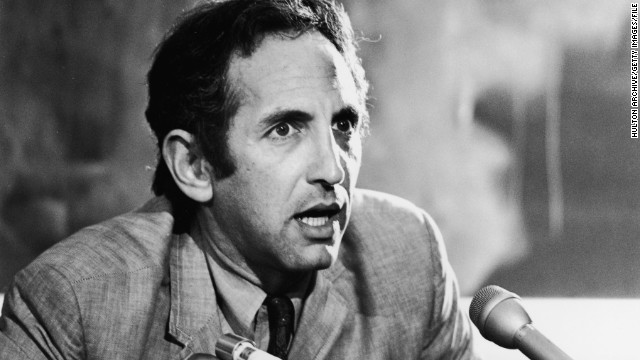 Military analyst Daniel Ellsberg leaked the 7,000-page Pentagon Papers in 1971. The top-secret documents revealed that senior American leaders, including three presidents, knew the Vietnam War was an unwinnable, tragic quagmire. Further, they showed that the government had lied to Congress and the public about the progress of the war. Ellsberg surrendered to authorities and was charged as a spy. During his trial, the court learned that President Richard Nixon's administration had embarked on a campaign to discredit Ellsberg, illegally wiretapping him and breaking into his psychiatrist's office. All charges against him were dropped. Since then he has lived a relatively quiet life as a respected author and lecturer.
Military analyst Daniel Ellsberg leaked the 7,000-page Pentagon Papers in 1971. The top-secret documents revealed that senior American leaders, including three presidents, knew the Vietnam War was an unwinnable, tragic quagmire. Further, they showed that the government had lied to Congress and the public about the progress of the war. Ellsberg surrendered to authorities and was charged as a spy. During his trial, the court learned that President Richard Nixon's administration had embarked on a campaign to discredit Ellsberg, illegally wiretapping him and breaking into his psychiatrist's office. All charges against him were dropped. Since then he has lived a relatively quiet life as a respected author and lecturer.
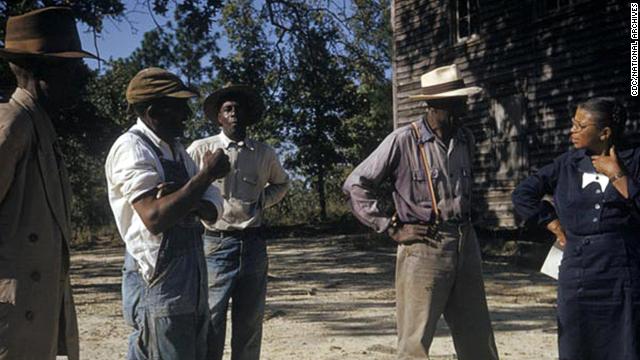 Starting in 1932, the U.S. Public Health Service studied untreated syphilis in black men who thought they were getting free health care. The patients weren't told of their affliction or sufficiently treated. Peter Buxtun, who worked for the Public Health Service, relayed information about the Tuskegee syphilis experiment to a reporter in 1972, which halted the 40-year study. His testimony at congressional hearings led to an overhaul of the Health, Education and Welfare rules concerning work with human subjects. A class-action lawsuit was settled out-of-court for $10 million, with the U.S. government promising free medical care to survivors and their families. Here, participants talk with a study coordinator.
Starting in 1932, the U.S. Public Health Service studied untreated syphilis in black men who thought they were getting free health care. The patients weren't told of their affliction or sufficiently treated. Peter Buxtun, who worked for the Public Health Service, relayed information about the Tuskegee syphilis experiment to a reporter in 1972, which halted the 40-year study. His testimony at congressional hearings led to an overhaul of the Health, Education and Welfare rules concerning work with human subjects. A class-action lawsuit was settled out-of-court for $10 million, with the U.S. government promising free medical care to survivors and their families. Here, participants talk with a study coordinator.
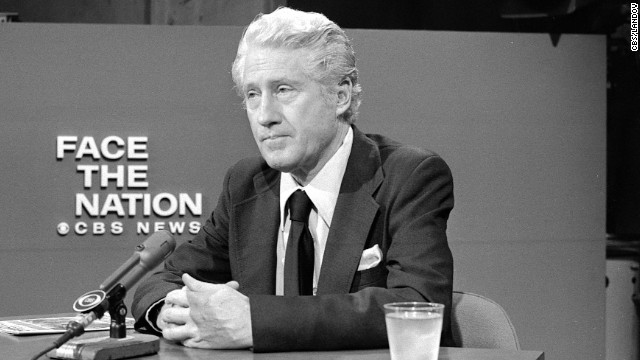 In 2005, retired deputy FBI director Mark Felt revealed himself to be the whistle-blower "Deep Throat" in the Watergate scandal. He anonymously assisted Washington Post reporters Carl Bernstein and Bob Woodward with many of their stories about the Nixon administration's cover-up after the June 1972 break-in at the Democratic National Committee headquarters. The stories sparked a congressional investigation that eventually led to President Nixon's resignation in 1974. The Post won a Pulitzer Prize for its coverage. Felt was convicted on unrelated conspiracy charges in 1980 and eventually pardoned by President Ronald Reagan before slipping into obscurity for the next quarter-century. He died in 2008 at age 95.
In 2005, retired deputy FBI director Mark Felt revealed himself to be the whistle-blower "Deep Throat" in the Watergate scandal. He anonymously assisted Washington Post reporters Carl Bernstein and Bob Woodward with many of their stories about the Nixon administration's cover-up after the June 1972 break-in at the Democratic National Committee headquarters. The stories sparked a congressional investigation that eventually led to President Nixon's resignation in 1974. The Post won a Pulitzer Prize for its coverage. Felt was convicted on unrelated conspiracy charges in 1980 and eventually pardoned by President Ronald Reagan before slipping into obscurity for the next quarter-century. He died in 2008 at age 95.
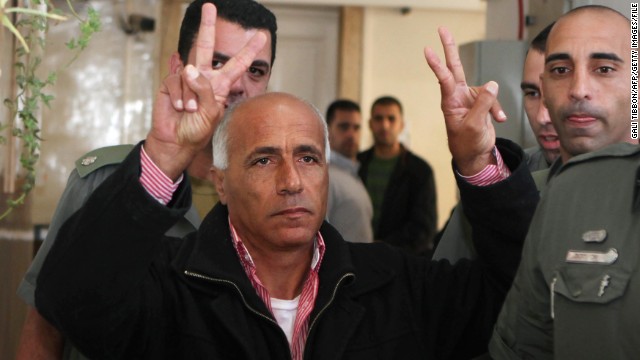 Mordechai Vanunu, who worked as a technician at Israel's nuclear research facility, leaked information to a British newspaper and led nuclear arms analysts to conclude that Israel possessed a stockpile of nuclear weapons. Israel has neither confirmed nor denied its weapons program. An Israeli court convicted Vanunu in 1986 after Israeli intelligence agents captured him in Italy. He was sentenced to 18 years in prison. Since his release in 2004, he has been arrested on a number of occasions for violating terms of his parole.
Mordechai Vanunu, who worked as a technician at Israel's nuclear research facility, leaked information to a British newspaper and led nuclear arms analysts to conclude that Israel possessed a stockpile of nuclear weapons. Israel has neither confirmed nor denied its weapons program. An Israeli court convicted Vanunu in 1986 after Israeli intelligence agents captured him in Italy. He was sentenced to 18 years in prison. Since his release in 2004, he has been arrested on a number of occasions for violating terms of his parole.
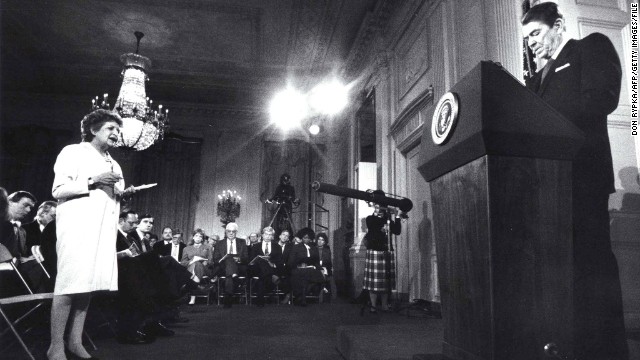 President Ronald Reagan addresses the media in 1987, months after the disclosure of the Iran-Contra affair. A secret operation carried out by an American military officer used proceeds from weapons sales to Iran to fund the anti-communist Contras in Nicaragua and attempted to secure the release of U.S. hostages held by Iran-backed Hezbollah in Lebanon. Mehdi Hashemi, an officer of Iran's Islamic Revolutionary Guards Corps, leaked evidence of the deal to a Lebanese newspaper in 1986. Reagan's closest aides maintain he did not fully know, and only reluctantly came to accept, the circumstances of the operation.
President Ronald Reagan addresses the media in 1987, months after the disclosure of the Iran-Contra affair. A secret operation carried out by an American military officer used proceeds from weapons sales to Iran to fund the anti-communist Contras in Nicaragua and attempted to secure the release of U.S. hostages held by Iran-backed Hezbollah in Lebanon. Mehdi Hashemi, an officer of Iran's Islamic Revolutionary Guards Corps, leaked evidence of the deal to a Lebanese newspaper in 1986. Reagan's closest aides maintain he did not fully know, and only reluctantly came to accept, the circumstances of the operation.
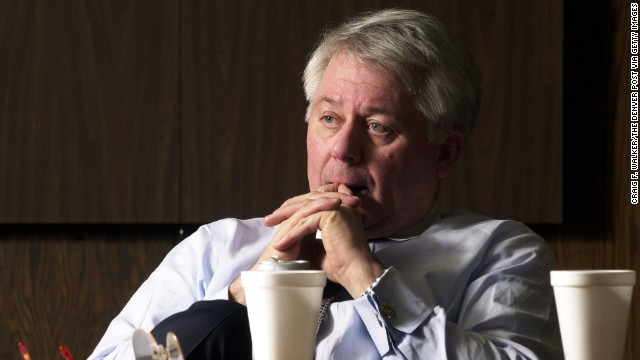 Tobacco industry executive Jeffrey Wigand issued a memo to his company in 1992 about his concerns regarding tobacco additives. He was fired in March 1993 and subsequently contacted by "60 Minutes" and persuaded to tell his story on CBS. He claimed that Brown & Williamson knowingly used additives that were carcinogenic and addictive and spent millions covering it up. He also testified in a landmark case in Mississippi that resulted in a $246 billion settlement from the tobacco industry. Wigand has received public recognition for his actions and continues to crusade against Big Tobacco. He was portrayed by Russell Crowe in the 1999 film "The Insider."
Tobacco industry executive Jeffrey Wigand issued a memo to his company in 1992 about his concerns regarding tobacco additives. He was fired in March 1993 and subsequently contacted by "60 Minutes" and persuaded to tell his story on CBS. He claimed that Brown & Williamson knowingly used additives that were carcinogenic and addictive and spent millions covering it up. He also testified in a landmark case in Mississippi that resulted in a $246 billion settlement from the tobacco industry. Wigand has received public recognition for his actions and continues to crusade against Big Tobacco. He was portrayed by Russell Crowe in the 1999 film "The Insider."
 For 10 years, Frederic Whitehurst complained mostly in vain about practices at the FBI's world-renowned crime lab, where he worked. His efforts eventually led to a 1997 investigation that found lab agents produced inaccurate and scientifically flawed testimony in major cases, including the Oklahoma City and World Trade Center bombings. The Justice Department recommended major reforms but also criticized Whitehurst for "overstated and incendiary" allegations. He also faced disciplinary action for refusing to cooperate with an investigation into how some of his allegations were leaked to a magazine. After a yearlong paid suspension he left the bureau in 1998 with a settlement worth more than $1.16 million.
For 10 years, Frederic Whitehurst complained mostly in vain about practices at the FBI's world-renowned crime lab, where he worked. His efforts eventually led to a 1997 investigation that found lab agents produced inaccurate and scientifically flawed testimony in major cases, including the Oklahoma City and World Trade Center bombings. The Justice Department recommended major reforms but also criticized Whitehurst for "overstated and incendiary" allegations. He also faced disciplinary action for refusing to cooperate with an investigation into how some of his allegations were leaked to a magazine. After a yearlong paid suspension he left the bureau in 1998 with a settlement worth more than $1.16 million.
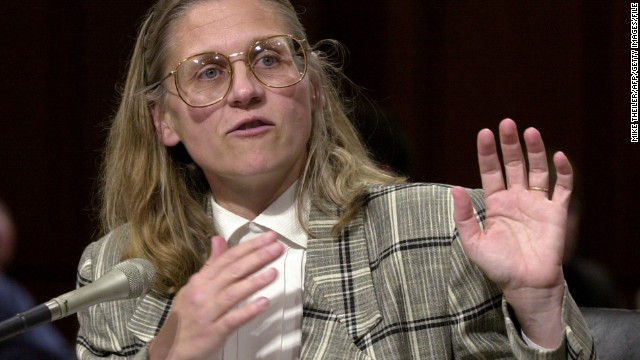 FBI whistle-blower Coleen Rowley accused the bureau of hindering efforts to investigate a suspected terrorist that could have disrupted plans for the September 11, 2001, terror attacks. In 2002 she fired off a 13-page letter to FBI Director Robert Mueller and flew to Washington to hand-deliver copies to two members of the Senate Intelligence Committee and meet with committee staffers. The letter accused the bureau of deliberately undermining requests to look into Zacarias Moussaoui, the only person convicted in the United States of playing a role in the attacks. She testified in front of Congress and the 9/11 Commission about the FBI's mishandling of information. Rowley was selected as one of Time magazine's People of the Year in 2002, along with whistle-blowers Sherron Watkins of Enron and Cynthia Cooper of WorldCom.
FBI whistle-blower Coleen Rowley accused the bureau of hindering efforts to investigate a suspected terrorist that could have disrupted plans for the September 11, 2001, terror attacks. In 2002 she fired off a 13-page letter to FBI Director Robert Mueller and flew to Washington to hand-deliver copies to two members of the Senate Intelligence Committee and meet with committee staffers. The letter accused the bureau of deliberately undermining requests to look into Zacarias Moussaoui, the only person convicted in the United States of playing a role in the attacks. She testified in front of Congress and the 9/11 Commission about the FBI's mishandling of information. Rowley was selected as one of Time magazine's People of the Year in 2002, along with whistle-blowers Sherron Watkins of Enron and Cynthia Cooper of WorldCom.
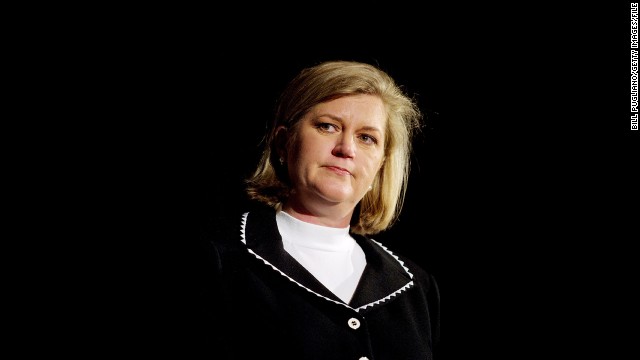 Sherron Watkins, a former vice president at Enron, sent an anonymous letter to founder Kenneth Lay in 2001 warning him the company had accounting irregularities. The memo eventually reached the public and she later testified before Congress about her concerns and the company's wrongdoings. More than 4,000 Enron employees lost their jobs, and many also lost their life savings, when the energy giant declared bankruptcy in 2001. Investors lost billions of dollars. An investigation in 2002 found that Enron executives reaped millions of dollars from off-the-books partnerships and violated basic rules of accounting and ethics. Many were sentenced to prison for their roles in the Enron scandal.
Sherron Watkins, a former vice president at Enron, sent an anonymous letter to founder Kenneth Lay in 2001 warning him the company had accounting irregularities. The memo eventually reached the public and she later testified before Congress about her concerns and the company's wrongdoings. More than 4,000 Enron employees lost their jobs, and many also lost their life savings, when the energy giant declared bankruptcy in 2001. Investors lost billions of dollars. An investigation in 2002 found that Enron executives reaped millions of dollars from off-the-books partnerships and violated basic rules of accounting and ethics. Many were sentenced to prison for their roles in the Enron scandal.
 Cynthia Cooper and her team of auditors uncovered massive fraud at WorldCom in 2002. They found that the long-distance telephone provider had used $3.8 billion in questionable accounting entries to inflate earnings over the past five quarters. By the end of 2003, the total fraud was estimated to be $11 billion. The company filed for bankruptcy protection and five executives ended up in prison. Cooper started her own consulting firm and told her story in the book "Extraordinary Circumstances: The Journey of a Corporate Whistleblower."
Cynthia Cooper and her team of auditors uncovered massive fraud at WorldCom in 2002. They found that the long-distance telephone provider had used $3.8 billion in questionable accounting entries to inflate earnings over the past five quarters. By the end of 2003, the total fraud was estimated to be $11 billion. The company filed for bankruptcy protection and five executives ended up in prison. Cooper started her own consulting firm and told her story in the book "Extraordinary Circumstances: The Journey of a Corporate Whistleblower."
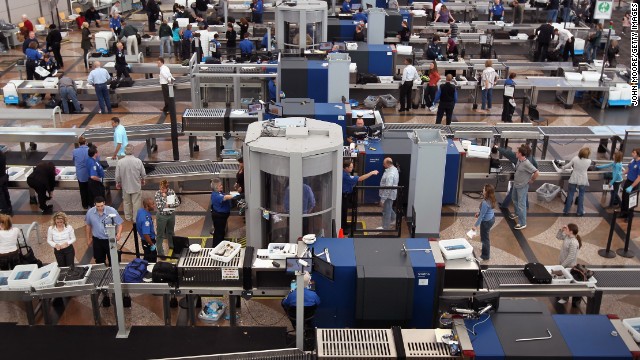 In 2003, federal air marshal Robert MacLean anonymously tipped off an MSNBC reporter that because of budget concerns, the TSA was temporarily suspending missions that would require marshals to stay in hotels just days after they were briefed about a new "potential plot" to hijack U.S. airliners. The news caused an immediate uproar on Capitol Hill and the TSA retreated, withdrawing the scheduling cuts before they went into effect. MacLean was later investigated and fired for the unauthorized disclosure of "sensitive security information."
In 2003, federal air marshal Robert MacLean anonymously tipped off an MSNBC reporter that because of budget concerns, the TSA was temporarily suspending missions that would require marshals to stay in hotels just days after they were briefed about a new "potential plot" to hijack U.S. airliners. The news caused an immediate uproar on Capitol Hill and the TSA retreated, withdrawing the scheduling cuts before they went into effect. MacLean was later investigated and fired for the unauthorized disclosure of "sensitive security information."
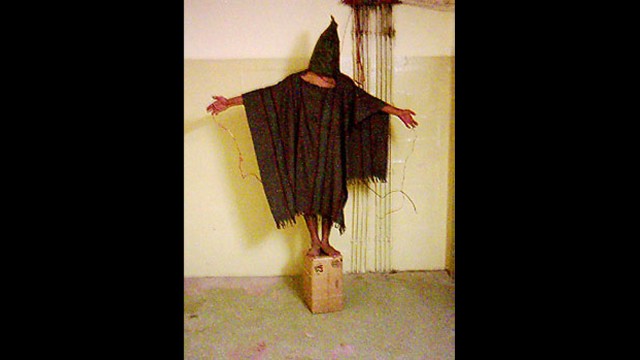 Joe Darby is the whistle-blower behind the Abu Ghraib prison abuse scandal in Iraq. He says he asked Army Reserve Spc. Charles Graner Jr. for photos from their travels so he could share them with family. Instead, he was given photos of prisoner abuse. Darby eventually alerted the U.S. military command, triggering an investigation and global outrage when the scandal came to light in 2004. Graner was sentenced to 10 years in prison for his part in the abuse. He was released in 2011 after serving 6½ years of his sentence. The military and members of Darby's own family ostracized him, calling him a traitor. Eventually he and his wife had to enter protective custody.
Joe Darby is the whistle-blower behind the Abu Ghraib prison abuse scandal in Iraq. He says he asked Army Reserve Spc. Charles Graner Jr. for photos from their travels so he could share them with family. Instead, he was given photos of prisoner abuse. Darby eventually alerted the U.S. military command, triggering an investigation and global outrage when the scandal came to light in 2004. Graner was sentenced to 10 years in prison for his part in the abuse. He was released in 2011 after serving 6½ years of his sentence. The military and members of Darby's own family ostracized him, calling him a traitor. Eventually he and his wife had to enter protective custody.
 The New York Times reported in 2005 that in the months after the September 11, 2001, attacks, President George W. Bush authorized the U.S. National Security Agency to eavesdrop without a court warrant on people in the United States, including American citizens, suspected of communicating with al Qaeda members overseas. The Bush administration staunchly defended the controversial surveillance program. Russ Tice, an NSA insider, came forward as one of the anonymous sources used by the Times. He said he was concerned about alleged abuses and a lack of oversight. Here, President Bush participates in a conversation about the Patriot Act in Buffalo, New York, in April 2004.
The New York Times reported in 2005 that in the months after the September 11, 2001, attacks, President George W. Bush authorized the U.S. National Security Agency to eavesdrop without a court warrant on people in the United States, including American citizens, suspected of communicating with al Qaeda members overseas. The Bush administration staunchly defended the controversial surveillance program. Russ Tice, an NSA insider, came forward as one of the anonymous sources used by the Times. He said he was concerned about alleged abuses and a lack of oversight. Here, President Bush participates in a conversation about the Patriot Act in Buffalo, New York, in April 2004.
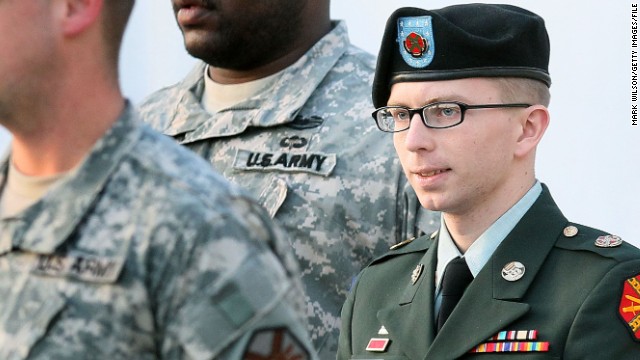 Army Pfc. Bradley Manning is accused in the largest leak of classified documents in U.S. history. His court-martial began on June 3. He has pleaded guilty to 10 of 22 charges against him and could face up to two decades in jail. He has pleaded not guilty to the most serious charge - that of aiding U.S. enemies, which carries the potential for a life sentence. At a February proceeding, Manning read a statement detailing why and how he sent classified material in 2010 to WikiLeaks, a group that facilitates the anonymous leaking of secret information.
Army Pfc. Bradley Manning is accused in the largest leak of classified documents in U.S. history. His court-martial began on June 3. He has pleaded guilty to 10 of 22 charges against him and could face up to two decades in jail. He has pleaded not guilty to the most serious charge - that of aiding U.S. enemies, which carries the potential for a life sentence. At a February proceeding, Manning read a statement detailing why and how he sent classified material in 2010 to WikiLeaks, a group that facilitates the anonymous leaking of secret information.
Notable leakers and whistle-blowers
Notable leakers and whistle-blowers
Notable leakers and whistle-blowers
Notable leakers and whistle-blowers
Notable leakers and whistle-blowers
Notable leakers and whistle-blowers
Notable leakers and whistle-blowers
Notable leakers and whistle-blowers
Notable leakers and whistle-blowers
Notable leakers and whistle-blowers
Notable leakers and whistle-blowers
Notable leakers and whistle-blowers
Notable leakers and whistle-blowers
Notable leakers and whistle-blowers
Notable leakers and whistle-blowers
STORY HIGHLIGHTS
- NEW: Venezuela says Edward Snowden formally applied for asylum
- Nicaragua has said it would consider asylum "if the circumstances permit"
- Venezuela and Bolivia have also offered the former NSA contractor asylum
- Snowden says he's trying to stop "excesses of government"
Still a man without a country and stuck in a Moscow airport, U.S. intelligence leaker
Edward Snowden appears to have several options available as he seeks asylum.
Venezuela has extended an offer of asylum to Snowden; President Nicolas Maduro said his government received a formal asylum request from Snowden and is now waiting to hear back from him, a government spokesman said Monday.
If Snowden accepts asylum in Venezuela, Foreign Minister Elias Jaua told state-run VTV over the weekend, "we will have to be in contact with the government of the Russian Federation. He is there. Obviously, he is not in Venezuelan territory. We would have to get the opinion of the Russian government about it."
Venezuela is one of three left-leaning Latin American nations that, to varying degrees, have said they'd welcome Snowden. The others are Bolivia, which has offered asylum, and Nicaragua, which has said it would consider it.
 Snowden gets new options for asylum
Snowden gets new options for asylum
 Two countries offer Snowden asylum
Two countries offer Snowden asylum
 Reports: Venezuela offers to take leaker
Reports: Venezuela offers to take leaker
 Exploring Snowden's airport transit zone
Exploring Snowden's airport transit zone
Snowden, a former National Security Agency contractor who faces espionage charges in the United States, is slammed as a traitor by critics and hailed as a hero by his supporters.
He remains in limbo more than two weeks after arriving at Moscow's Sheremetyevo International Airport from Hong Kong.
Snowden speaks out
In his asylum request to Nicaragua, Snowden argued he had exposed serious violations of the U.S. Constitution when he revealed details about U.S. surveillance programs. He compared his case to Ecuador's granting of asylum to WikiLeaks founder Julian Assange, arguing there is already an "international precedent for providing asylum to figures in my circumstances." And he said the ongoing
trial of Pfc. Bradley Manning shows what could happen to him if he returns to the United States.
"It is unlikely I would receive a fair trial and proper treatment prior to that trial, and face the possibility of life in prison and even death," he wrote, according to a
copy of the letter published by Nicaraguan state media Sunday.
Meanwhile, the British newspaper The Guardian's
posted new video on its website Monday of an interview it conducted with Snowden on June 6.
In the interview, Snowden told the paper he knew the U.S. government would accuse him of violating the Espionage Act and aiding enemies of the United States after he leaked documents about U.S. surveillance programs.
"But that argument can be made against anybody who reveals information that points out mass surveillance systems, because fundamentally, they apply equally to ourselves as they do to our enemies," he said.
The former NSA contractor also said deciding to release the documents wasn't easy. When he started out in the intelligence community, Snowden said, he believed in the goodness of the American government. But over time, he said, he saw what he felt were abuses of power.
"I have watched and waited and tried to do my job in the most policy-driven way that I could, which is to wait and allow other people, leadership, to sort of correct the excesses of government if we go too far," he said, "but that's not occurring and, in fact, we're compounding the excesses of prior governments and making things more invasive, and no one is really standing to stop it."
Warnings from U.S. lawmakers
American politicians from both parties warned nations to consider what's at stake should they grant Snowden asylum.
"It's very clear that any of these countries that accept Snowden and offer him political asylum is taking a step against the United States. It's making a very clear statement. I'm not surprised by the countries that are offering him asylum; they like sticking it to the United States," Sen. Robert Menendez, D-New Jersey, said Sunday on NBC's "Meet the Press."
Menendez, chairman of the Senate Foreign Relations Committee, suggested serious trade and policy implications await countries that accept Snowden.
"Clearly any such acceptance of Snowden to any country, any of these three or any other, is going to put them directly against the United States, and they need to know that," Menendez told "Meet the Press."
Rep. Mike Rogers, chairman of the House Intelligence Committee, agreed with Menendez, calling for action from the United States.
"We shouldn't just allow this to happen and shrug it off. This is serious business. Those Latin American companies enjoy certain trade benefits with the United States. We ought to look at all of that to send a very clear message that we won't put up with this kind of behavior," the Michigan Republican told CNN's Candy Crowley on "State of the Union" on Sunday.
Rogers said the countries willing to accept Snowden are using the former intelligence worker as a "public relations tool."
Offers from Venezuela, Bolivia and Nicaragua
With the United States flexing its international clout, Snowden had faced a string of rejections to asylum requests. The Latin American countries were the first to respond in the positive.
Bolivian President Evo Morales, who became part of the saga last week when his presidential plane was denied permission to enter the airspace of several European countries amid a rumor about Snowden being aboard, said his country is "willing to give asylum."
Nicaraguan President Daniel Ortega has said he would grant Snowden asylum "if the circumstances permit."
"We are an open country, respectful of the right of asylum ... and it is clear that if the circumstances permit it, we would gladly receive Snowden and give him asylum here in Nicaragua," Ortega said last week.
The asylum offers could provide Snowden a chance to evade U.S. authorities, though it is unclear how he would get to Venezuela or the other countries.
In a speech Sunday, Cuban President Raul Castro said he supports the Latin American countries' rights to grant asylum.
"We back the sovereign right of Venezuela and all the states in the region to grant asylum to those persecuted for their ideals or fights for democratic rights, according to our tradition," he said.
Snowden's exit from Russia would provide relief to authorities there, who appear weary of the American's presence at the airport.
Alexei Pushkov, head of the lower Russian legislative body, the Duma, recommended Snowden leave the airport, where he has been holed up since June 23.
"Sanctuary for Snowden in Venezuela would be the best solution," Pushkov tweeted Saturday. "He can't live in at Sheremetyevo."
Bolivia's 'fair protest'
Bolivia's position on asylum follows outrage by its president over his sidetracked trip from Russia last week.
Several European countries refused to allow Morales' plane through their airspace Tuesday because of
suspicions Snowden was aboard. With no clear path home available, the flight crew made an unscheduled landing in Vienna, Austria, where authorities confirmed Snowden was not a passenger.
Bolivia's asylum offer is a "fair protest" to the incident, which involved Portugal, Italy, France and Spain, Morales said. Spain has said it did not restrict its airspace.
On Monday, Bolivia summoned the four countries' ambassadors, demanding answers over what happened, Communications Minister Amanda Davila told reporters.
Irish court denies U.S. arrest warrant request
As the global guessing game over Snowden's next steps continues, the United States has asked a number of countries to arrest him and send him back to the United States if he sets foot in their territories.
Bolivia said last week that it was sending back a request that U.S. officials made to the South American nation.
And a judge in Ireland's High Court Monday denied a request from the United States to issue an arrest warrant for Snowden, ruling that
the United States had failed to indicate where Snowden's alleged offenses took place.
In a statement Monday, Ireland's justice minister said the court's ruling would not prevent the United States from submitting a new application for a provisional arrest warrant.
CNN's Rachel Streitfeld, Patrick Oppmann, Dana Davidsen and Melissa Gray and journalist Peter Taggart contributed to this report.
 Snowden gets new options for asylum
Snowden gets new options for asylum  Two countries offer Snowden asylum
Two countries offer Snowden asylum  Reports: Venezuela offers to take leaker
Reports: Venezuela offers to take leaker  Exploring Snowden's airport transit zone
Exploring Snowden's airport transit zone  Former intelligence worker
Former intelligence worker  Military analyst
Military analyst  Starting in 1932, the U.S. Public Health Service studied untreated syphilis in black men who thought they were getting free health care. The patients weren't told of their affliction or sufficiently treated. Peter Buxtun, who worked for the Public Health Service, relayed information about the
Starting in 1932, the U.S. Public Health Service studied untreated syphilis in black men who thought they were getting free health care. The patients weren't told of their affliction or sufficiently treated. Peter Buxtun, who worked for the Public Health Service, relayed information about the  In 2005, retired deputy FBI director
In 2005, retired deputy FBI director 
 President Ronald Reagan addresses the media in 1987, months after the disclosure of the
President Ronald Reagan addresses the media in 1987, months after the disclosure of the  Tobacco industry executive Jeffrey Wigand issued a memo to his company in 1992 about his concerns regarding tobacco additives. He was fired in March 1993 and subsequently contacted by "60 Minutes" and persuaded to tell his story on CBS. He claimed that Brown & Williamson knowingly used additives that were carcinogenic and addictive and spent millions covering it up. He also testified in a landmark case in Mississippi that resulted in a $246 billion settlement from the tobacco industry. Wigand has received public recognition for his actions and continues to crusade against Big Tobacco. He was portrayed by Russell Crowe in the 1999 film "
Tobacco industry executive Jeffrey Wigand issued a memo to his company in 1992 about his concerns regarding tobacco additives. He was fired in March 1993 and subsequently contacted by "60 Minutes" and persuaded to tell his story on CBS. He claimed that Brown & Williamson knowingly used additives that were carcinogenic and addictive and spent millions covering it up. He also testified in a landmark case in Mississippi that resulted in a $246 billion settlement from the tobacco industry. Wigand has received public recognition for his actions and continues to crusade against Big Tobacco. He was portrayed by Russell Crowe in the 1999 film " For 10 years,
For 10 years,  FBI whistle-blower
FBI whistle-blower  Sherron Watkins, a former vice president at Enron, sent an anonymous letter to founder Kenneth Lay in 2001 warning him the company had accounting irregularities. The memo eventually reached the public and she later testified before Congress about her concerns and the company's wrongdoings. More than 4,000 Enron employees lost their jobs, and many also lost their life savings, when the energy giant declared bankruptcy in 2001. Investors lost billions of dollars. An investigation in 2002 found that Enron executives reaped millions of dollars from off-the-books partnerships and violated basic rules of accounting and ethics. Many were sentenced to prison for their roles in the
Sherron Watkins, a former vice president at Enron, sent an anonymous letter to founder Kenneth Lay in 2001 warning him the company had accounting irregularities. The memo eventually reached the public and she later testified before Congress about her concerns and the company's wrongdoings. More than 4,000 Enron employees lost their jobs, and many also lost their life savings, when the energy giant declared bankruptcy in 2001. Investors lost billions of dollars. An investigation in 2002 found that Enron executives reaped millions of dollars from off-the-books partnerships and violated basic rules of accounting and ethics. Many were sentenced to prison for their roles in the 
 In 2003, federal air marshal
In 2003, federal air marshal 

















No comments:
Post a Comment